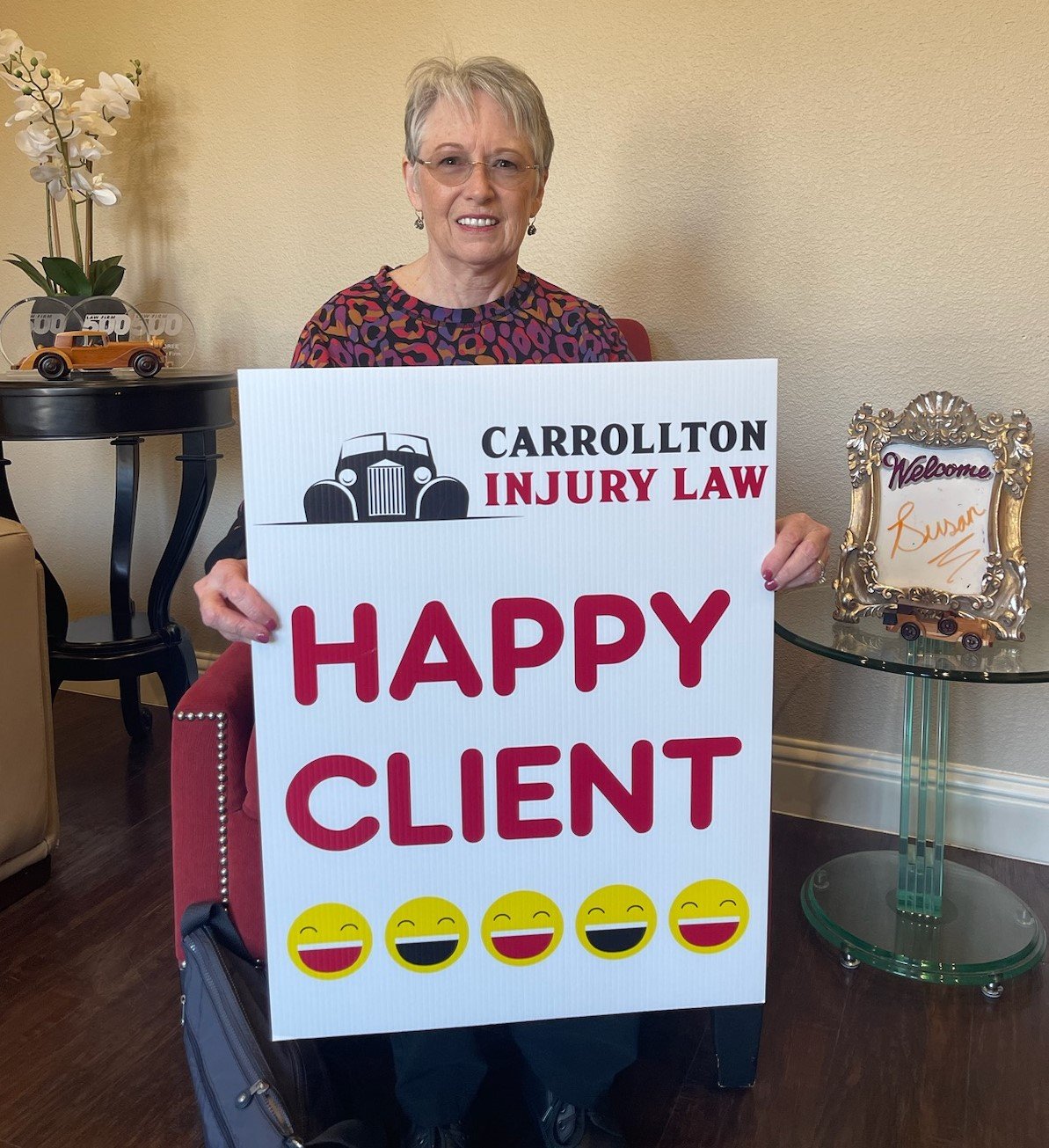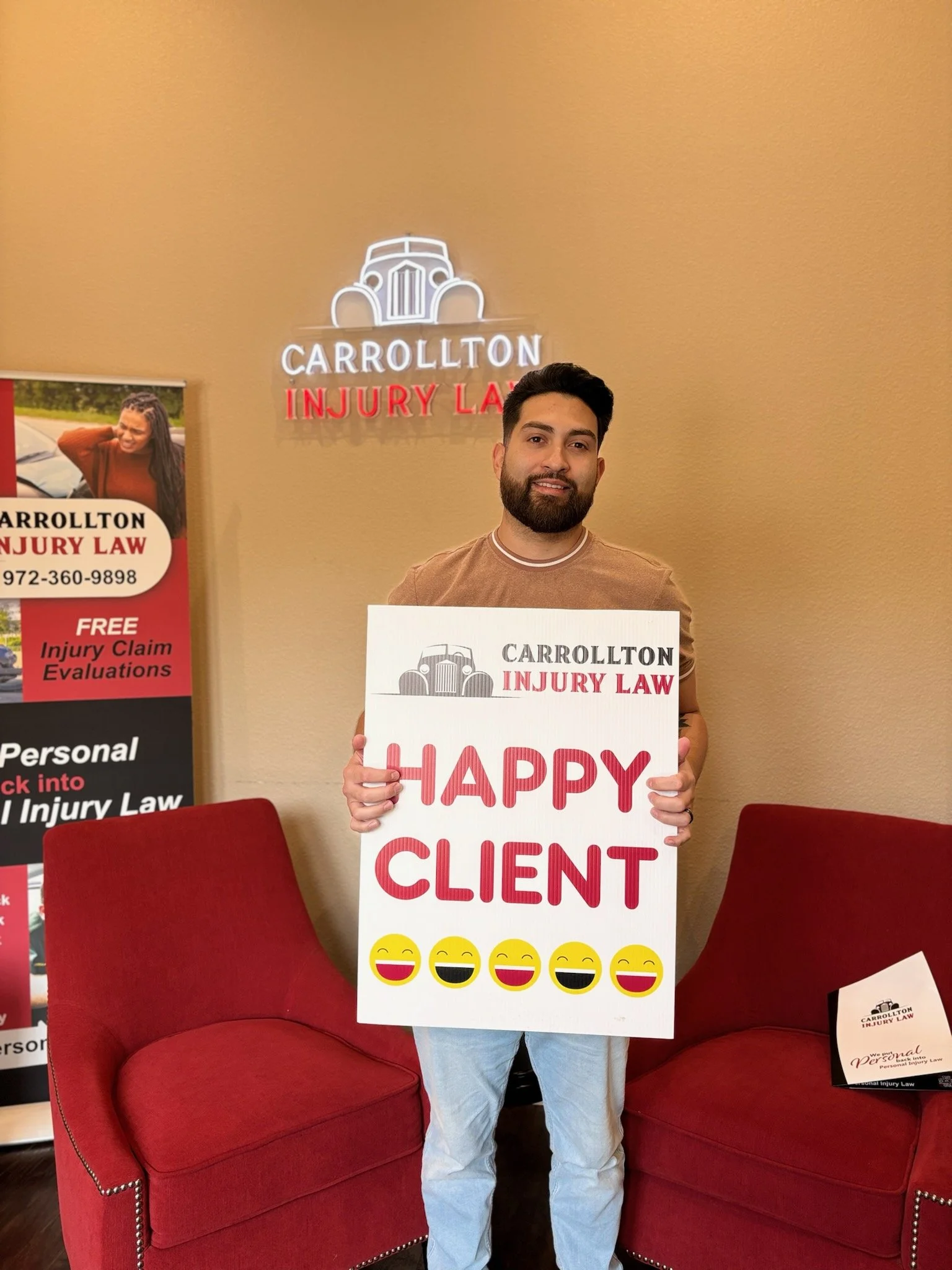Carrollton Non-Subscriber Work Injury Lawyer
Texas is the only state in the U.S. that does not require private employers to carry workers’ compensation insurance. These companies are known as “non-subscribers.” If you’re injured while working for a non-subscriber employer, your legal rights and recovery process look very different from a traditional workers’ compensation case.
At Carrollton Injury Law, we help injured workers stand up to non-subscriber employers and pursue the full compensation they deserve. If you’re facing medical bills, missed work, and pain from a workplace injury—and your employer doesn’t have workers’ comp—you’re not out of options. In fact, you may have even more powerful rights under Texas law.
WERE YOU OR A LOVED ONE SERIOUSLY INJURED?





















What Our Clients Say
How Non-Subscriber Cases Differ From Workers’ Compensation
In a traditional workers’ compensation system, injured employees typically cannot sue their employers. In exchange, they receive limited benefits for medical care and lost wages. But when your employer opts out of workers’ comp, they lose certain legal protections.
That’s where you may have an advantage. If a non-subscriber employer was negligent and that negligence caused your injury, you can file a personal injury lawsuit and potentially recover:
100% of lost wages
Past and future medical expenses
Pain and suffering
Loss of earning capacity
Punitive damages (in cases of gross negligence)
Unlike workers’ comp, where benefits are limited, a lawsuit against a non-subscriber employer can result in full financial recovery.
Common Causes of Workplace Injuries in Non-Subscriber Cases
In Texas, many non-subscriber employers operate in high-risk industries such as:
Warehousing and logistics
Construction and building trades
Food processing and packaging
Transportation and delivery services
Oilfield and industrial work
Retail and hospitality
Injuries in these environments can be devastating. We often handle cases involving:
Falls from ladders, scaffolds, or platforms
Forklift and machinery accidents
Repetitive motion injuries
Lifting and back injuries
Crush injuries from heavy equipment
Electrocution or burn incidents
Traumatic brain injuries (TBIs)
Amputations or serious lacerations
If employer negligence played a role—such as failing to provide proper safety equipment or ignoring OSHA regulations—you may have a strong case.
Who Is Liable When an Employer Doesn’t Carry Workers’ Comp?
When your employer is a non-subscriber, they can be held liable for damages in civil court if their negligence caused your injury. Unlike workers’ comp cases, liability matters.
Texas law does not allow a non-subscriber employer to argue “comparative fault” if they were even 1% responsible. That means if the employer is found even slightly negligent, they can be held fully responsible for your injury.
In addition, you may be able to file claims against:
Third-party contractors
Equipment manufacturers
Property owners
Subcontractors
Our legal team investigates all angles of liability to help you pursue every available avenue for compensation.
How Carrollton Injury Law Helps You
At Carrollton Injury Law, we put the “personal” back in personal injury law. When you hire our team, you get more than just legal guidance—you get a dedicated advocate who cares about your recovery and your future.
We Offer:
Free injury claim evaluations to review your case
Contingency fee representation—you pay nothing unless we win
Thorough investigations into how the injury happened and who’s liable
Aggressive negotiations and litigation to fight for your financial recovery
We handle every detail so you can focus on healing.
Who Is Liable When an Employer Doesn’t Carry Workers’ Comp?
When your employer is a non-subscriber, they can be held liable for damages in civil court if their negligence caused your injury. Unlike workers’ comp cases, liability matters.
Texas law does not allow a non-subscriber employer to argue “comparative fault” if they were even 1% responsible. That means if the employer is found even slightly negligent, they can be held fully responsible for your injury.
In addition, you may be able to file claims against:
Third-party contractors
Equipment manufacturers
Property owners
Subcontractors
Our legal team investigates all angles of liability to help you pursue every available avenue for compensation.
Why Employers Opt Out—and How That Affects You
Some employers opt out of the workers’ comp system to save money. Instead, they may offer private occupational injury plans—which often provide less coverage and include clauses that limit your ability to sue.
These plans do not provide the same legal protections as official Texas workers’ comp. That means:
You may be able to sue for negligence
You may recover more compensation than through a workers’ comp claim
Your employer cannot use certain legal defenses like "assumption of risk" or "co-worker negligence"
However, employers often fight these claims aggressively. That’s why it’s essential to have a skilled non-subscriber injury attorney in your corner.
What to Do After a Workplace Injury With a Non-Subscriber Employer
If you’ve been hurt on the job and your employer doesn’t have workers’ compensation, take the following steps to protect your rights:
1. Report the Injury Immediately
Tell your supervisor or manager as soon as the injury occurs. Put it in writing if possible. Don’t delay—waiting to report can hurt your credibility.
2. Get Medical Treatment
Seek medical attention right away. If your employer has a private plan with designated doctors, you can see them—but you can also seek independent care, especially if your injury is serious.
3. Do Not Sign Anything Without Legal Advice
Some employers try to get injured workers to sign waivers, arbitration agreements, or settlement offers right after an accident. These may limit your legal rights. Don’t sign without speaking to an attorney.
4. Contact an Experienced Work Injury Lawyer
An attorney who understands Texas non-subscriber law can help you build a strong case, protect your rights, and seek maximum compensation.
How Long Do You Have to File a Claim?
Texas law gives injured workers two years from the date of the injury to file a personal injury claim against a non-subscriber employer. However, it’s crucial to act quickly.
Over time, evidence may disappear, witnesses may become harder to contact, and employers may attempt to shift blame. The sooner you call us, the sooner we can start building your case.
Understanding Arbitration Agreements and Waivers
Many non-subscriber employers in Texas use arbitration agreements as part of their occupational injury plans. These documents often:
Limit your ability to file a lawsuit
Require disputes to be settled in private arbitration
Shorten the statute of limitations
These agreements are often buried in your hiring paperwork or presented after an injury. Not all arbitration clauses are enforceable, especially if they’re misleading or coercive.
We review these agreements carefully to determine whether you can challenge them and take your case to court.
Frequently Asked Questions (FAQ)
Can I still sue if I signed an arbitration agreement?
Possibly. While some arbitration agreements are enforceable, many are not—especially if you were pressured to sign after your injury or didn’t fully understand what you were signing. Let our team evaluate the agreement and advise you on your options.
What if I was partially at fault for my injury?
If your employer is a non-subscriber, Texas law does not allow them to claim “comparative negligence.” If they are found even 1% responsible, they may be liable for 100% of your damages.
Can I file a claim if a coworker caused the accident?
Yes. In non-subscriber cases, the employer can still be held liable for injuries caused by the negligence of their employees or unsafe working conditions.
Do I need a lawyer to handle my claim?
Yes. Non-subscriber employers often have experienced legal teams and insurance companies working to minimize payouts. An attorney levels the playing field and helps you pursue full and fair compensation.
What damages can I recover?
You may seek compensation for:
Full lost wages (past and future)
Medical bills
Pain and suffering
Loss of earning capacity
Disability and disfigurement
Punitive damages (in extreme cases)
Is there a deadline to file my case?
Yes. You typically have two years from the date of injury to file. However, some arbitration agreements may attempt to shorten this window—another reason to speak with a lawyer immediately.
Contact Carrollton Injury Law Today for a Free Non-Subscriber Work Injury Claim Evaluation
If you or a loved one has been injured in a non-subscriber work injury, you don’t have to go through this alone.
The Carrollton Injury Law team is here to fight for your rights and help you obtain the maximum compensation possible.
We proudly serve Carrollton, Texas, and surrounding areas.
Let us help you rebuild your life after a serious car accident.
You focus on healing—we’ll handle the rest.
Free Injury Claim Evaluation
No Fee Unless We Win

